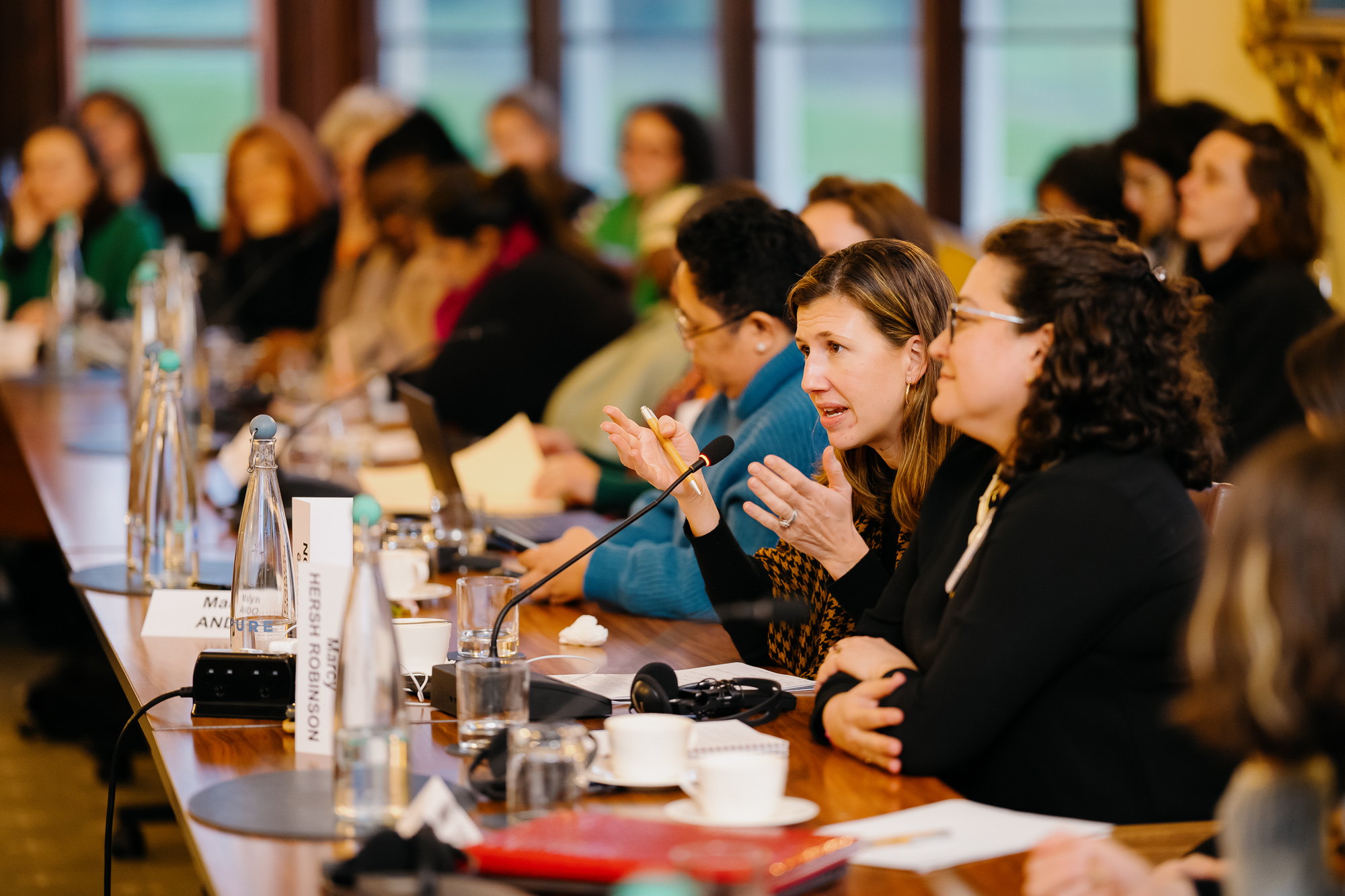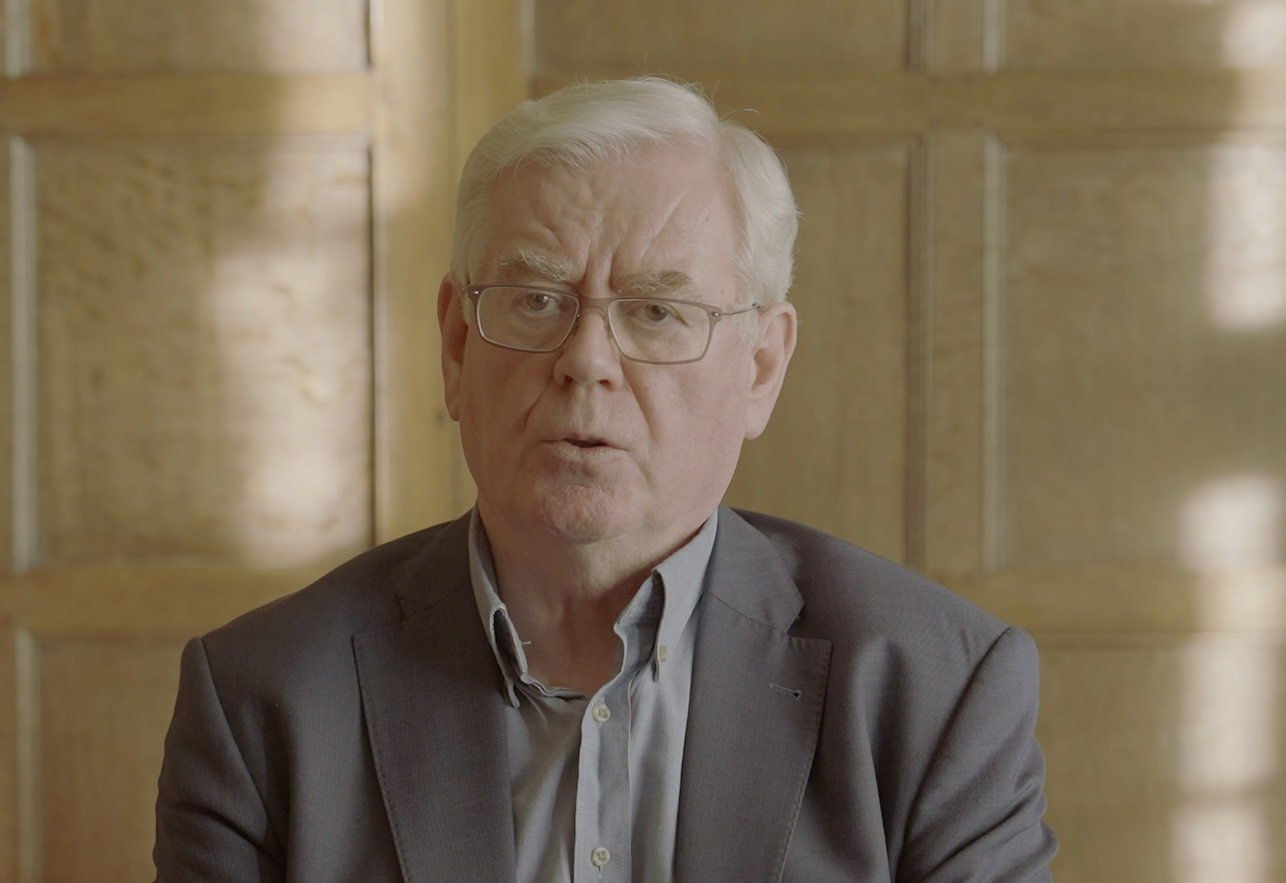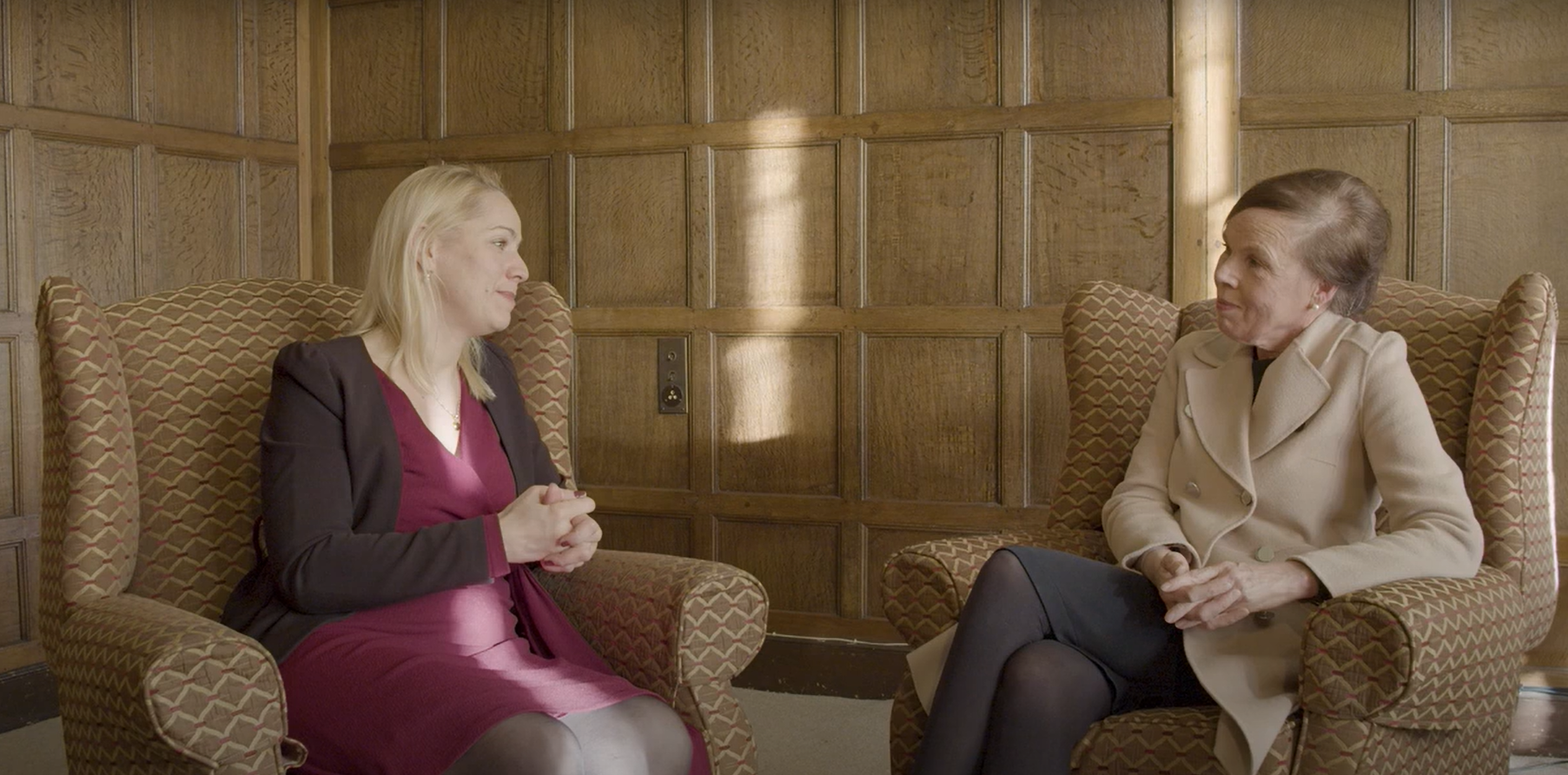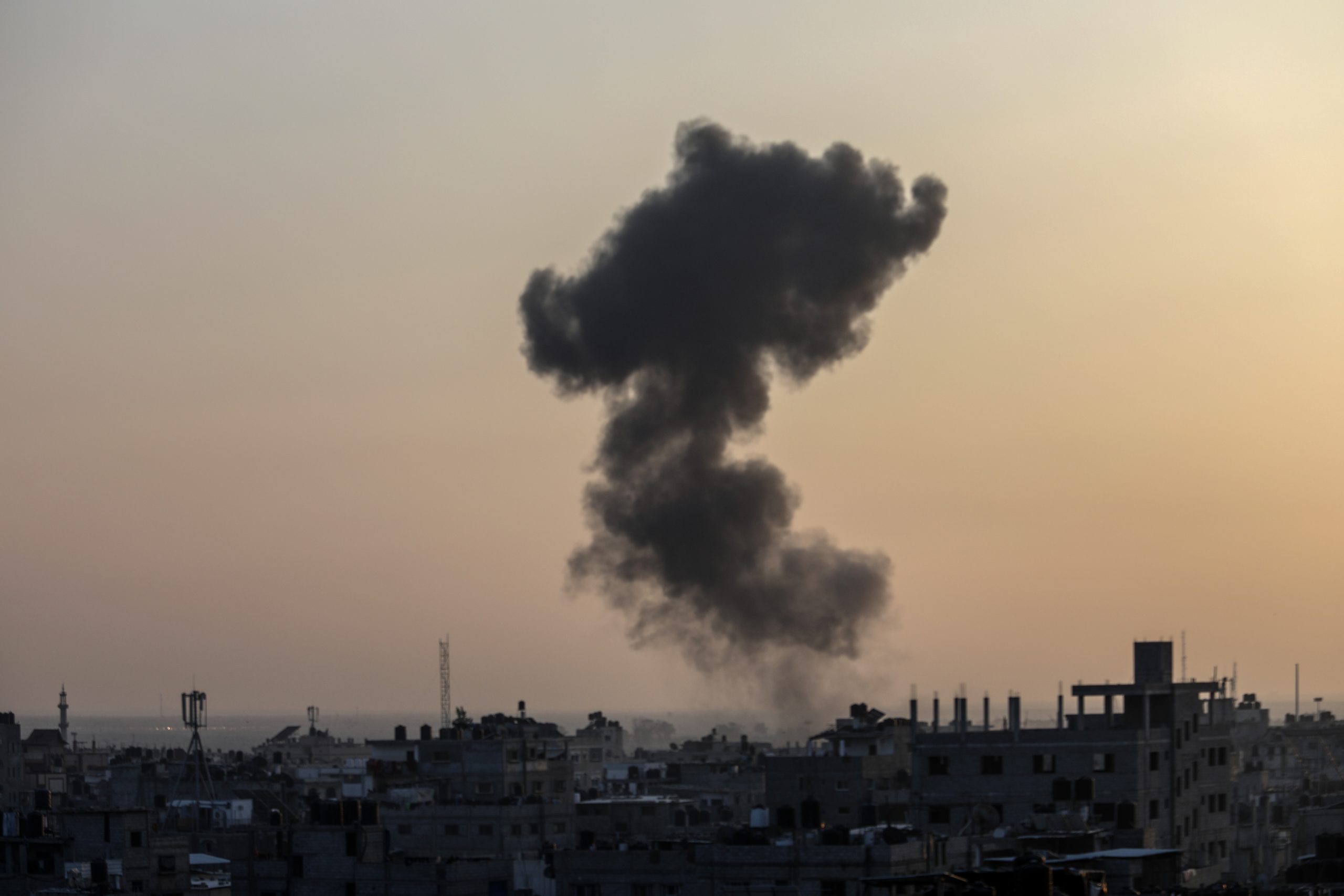On 11 April 2013, UK Foreign Secretary, William Hague launched the G8 Declaration on Preventing Sexual Violence, alongside Special Representative of the Secretary General on Sexual Violence in Conflict, Zainab Hawa Bangura.

Special Representative on Sexual Violence in Conflict, United Nations Office of the Special Representative on Sexual Violence in Conflict, UN Secretariat; State Secretary Gry Larsen, State Secretary
Norwegian Ministry of Foreign Affairs and Ms Julia Duncan-Cassell
Minister of Gender and Development, Ministry of Gender and Development at our conference in November 2012
Mr Hague was also joined by Special Envoy of the UN High Commissioner for Refugees, Angelina Jolie, and G8 Foreign Ministers. Collectively, the group announced that rape and sexual violence in armed conflict are “grave breaches of the Geneva Convention” and should be considered war crimes. Mr Hague stated:
“Our goal must be a world in which it is inconceivable that thousands of women, children and men can be raped in the course of a conflict – because an international framework of deterrence and accountability makes it impossible.”
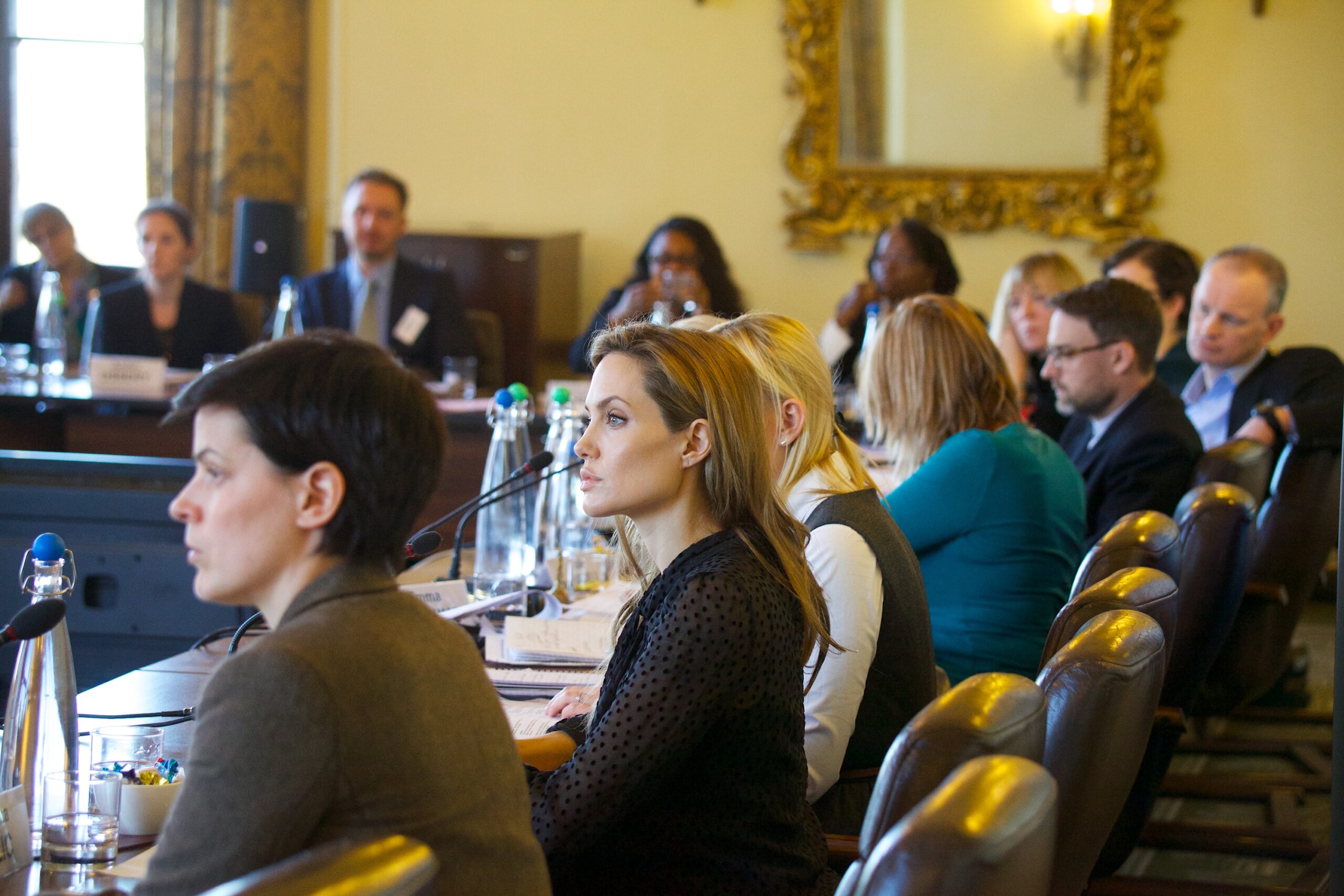
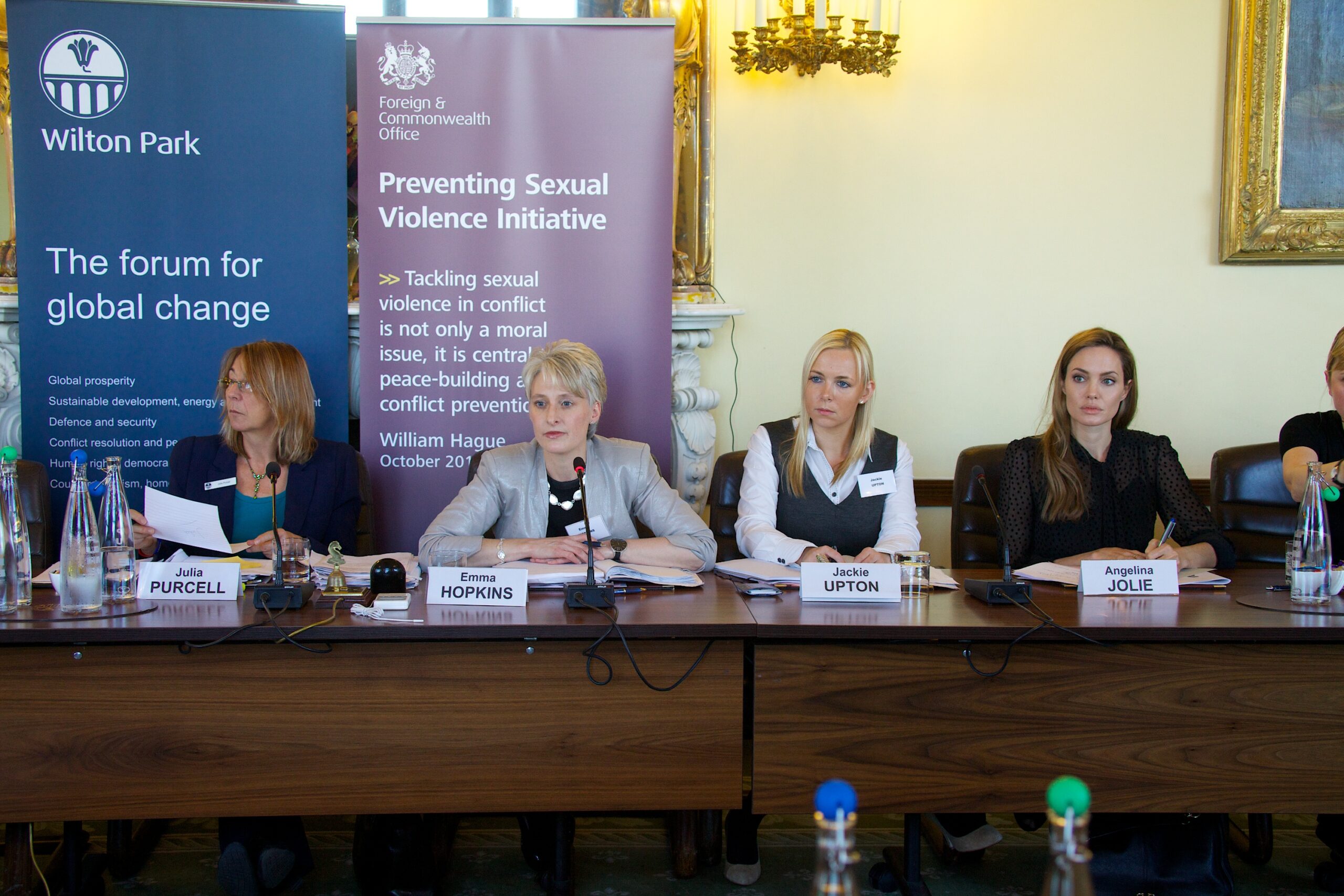
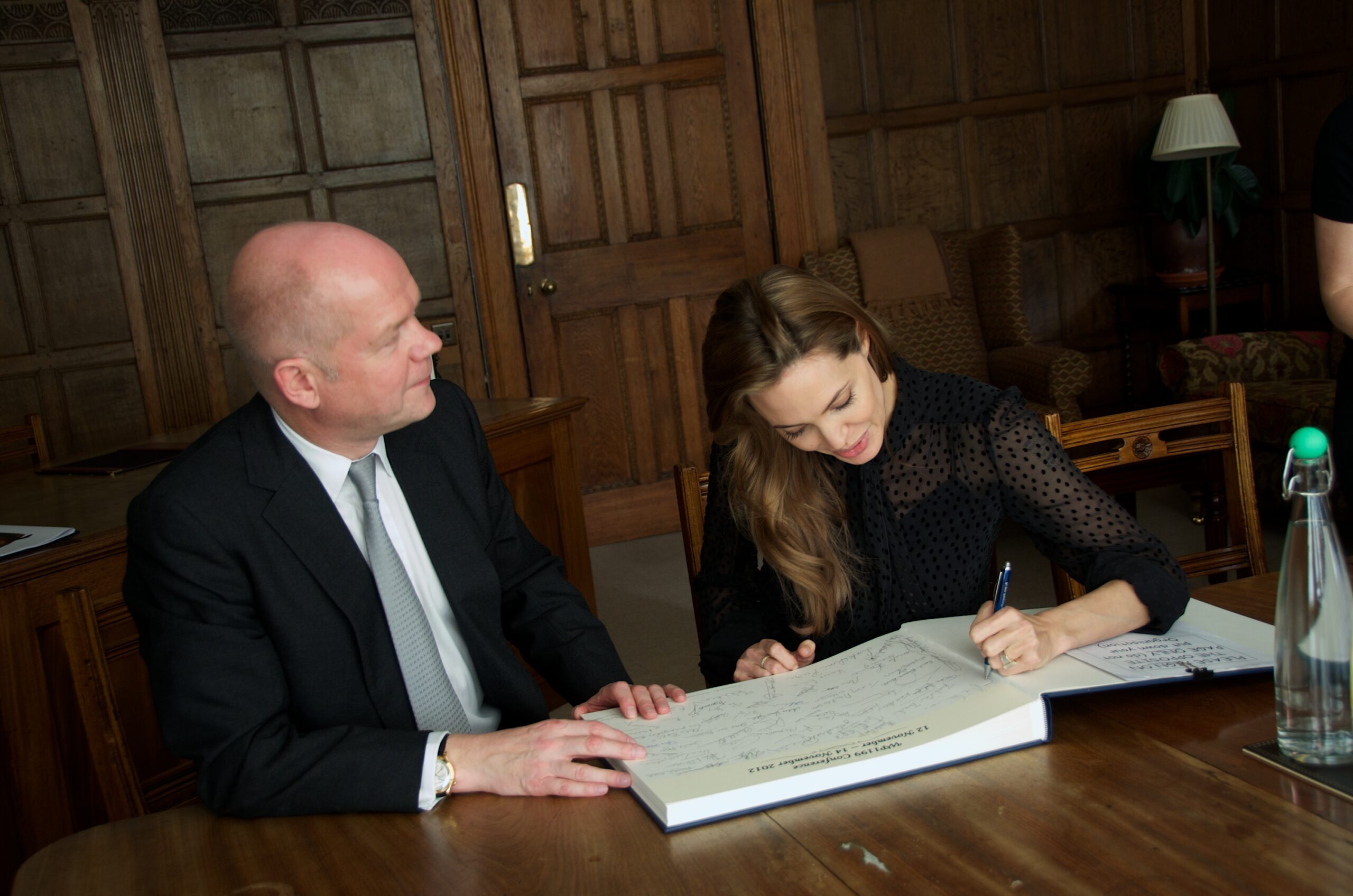
UN Special Representative Bangura was a keynote speaker at our November 2012 conference on Preventing sexual violence in conflict and post-conflict situations. The conference was opened by the Foreign Secretary who has played a critical role in elevating the issue on the international security agenda. Many of the issues discussed during our conference have been developed as action points within the Declaration.
“For the perpetrators, there can be no hiding place; no amnesty; no safe harbour. They will be pursued by any and all means at our collective disposal. In the process we will begin to transfer the stigma of this crime from the victims, to the perpetrators.”
Furthermore, the Declaration commits G8 countries to the Development of a Comprehensive International Protocol on the Investigation and Documentation of rape and sexual violence in conflict on which the UK will take the lead in collaboration with a range of global experts. Ministers also promised to review national doctrine and training provided to police and military personnel to better equip them in dealing with sexual violence within conflict zones to which they are deployed.
The UK has already begun work in this area through the deployment of over 70 experts including doctors, forensic scientists, police and gender experts to Libya, Bosnia, and the border of Syria – further missions to Mali, the Democratic Republic of Congo and South Sudan are planned for later this year.
A funding pledge of nearly £23 million ($35.5 million) was made in support of proposed actions, including over £20 million from the UK from the Foreign and Commonwealth Office and the Department for International Development. The Foreign Secretary pledged an additional £150,000 to be delivered directly to the UN Office of the Special Representative of the Secretary General on Children and Armed Conflict.
Overall, the Declaration emphasises that not only should protection efforts against sexual violence be included in the first phase of conflict and humanitarian response, but also that women must be included at all stages. Our recent conference on Women in Peacebuilding focused specifically on this aspect and sort to identify constraints and opportunities as well as make recommendations for effective implementation at international and national levels for the UN’s seven-point action plan.
The Declaration represents a landmark moment for the organisations and individuals that have long been engaged in the fight against sexual violence, a culture of impunity and a forgotten generation of victims, as noted by UN Special Envoy Angelina Jolie:

“For too long they have been the forgotten victims of war: responsible for none of the harm, but bearing the worst of the pain.”
Angelina Jolie, Special Envoy of the UN High Commissioner for Refugees


